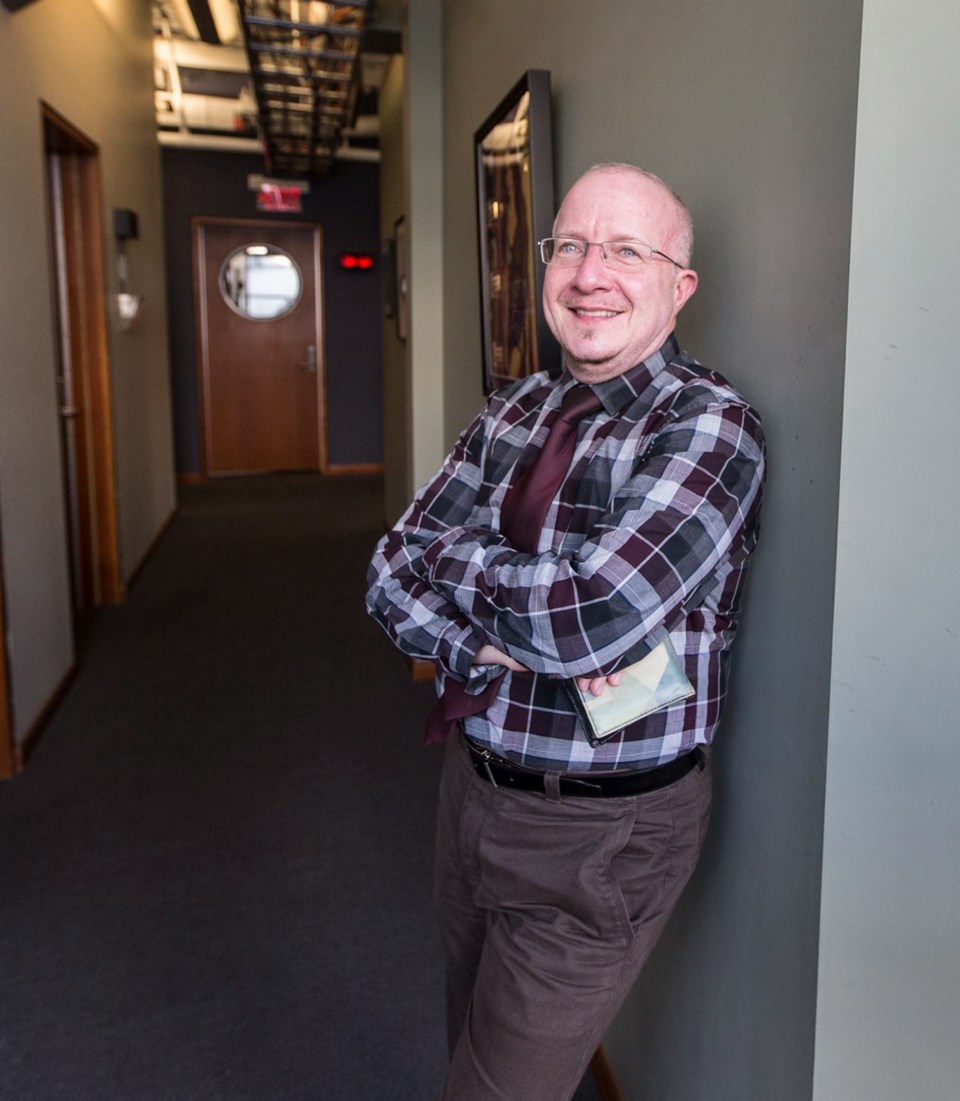If there’s one word that I steer clear of, it’s the word “tolerance.” In its place, I choose to use the word “acceptance.”
It’s common to hear people preaching about tolerance, but to me that’s not good enough. If someone said that they were “tolerating” me, I really wouldn’t feel welcome, let alone supported.
There are many of us who take acceptance for granted in our daily lives, and I think it’s important to remember that other people don’t always have it so easy.
The B.C. government recently made the announcement that transgender people in B.C. will soon have access to lower-body surgery within our own province. Before this announcement, many people in B.C. seeking this surgery had to travel out of province and across the country to cities such as Montreal.
Victoria resident James Gardner has travelled to Montreal for gender-reassignment surgery five times in the past two years.
Gardner is open about his experience being transgender and his journey of transitioning from female to male.
“I was finally able to be myself. It was a relief to not have to pretend anymore,” Gardner said. “My surgeon told me he’s had many patients tell him that he saved their lives. He saved my life.”
Surgery is a component to some people’s transitions, but it’s not a defining factor in transitioning.
“To me, not having surgery would have left me feeling incomplete, but there are many transgender people who don’t feel the need for surgery to define them,” Gardner said. “You can transition without surgery and without hormones.”
This is a powerful statement and something that I think needs to be reinforced. When someone identifies as a specific gender, it’s important to embrace that. Gender identity is something that is personal, and it’s up to each individual to determine how they identify.
“If a person tells you who they are, that’s who they are,” said Gardner. “We know who we are. You don’t need to look a certain way for society.”
More and more, I hear people asking others what their pronouns are. The responses can be he/him, she/her or they/them. Sure, it might be awkward to ask or feel unfamiliar to use they/them pronouns in a sentence for the first few times, but it’s respectful.
I love the saying: “Get comfortable being uncomfortable,” because to me you can’t grow as a person without a little discomfort.
As with any new generation, things become more progressive than in the generations before. Today, my daughter has friends who are transgender and have transitioned at an early age. The first time my daughter came home after playing with a transgender child, she looked at me and said: “I am just so happy that she can be herself.”
I wish everyone could have this attitude and acceptance, and I think our society is moving toward acceptance.
A few months ago, I attended a conference at the Victoria Convention Centre and there was a sign prominently displayed that read “Gender Inclusive Washroom.” I was chatting with someone who told me that at another conference the delegate nametags had a place for each person to write their pronouns. This wasn’t just something for transgender people, it was for all delegates. It’s small actions such as this that demonstrate what real acceptance and inclusivity are.
Gardner came out to his family, friends and workplace as transgender when he was 52 years old, and overall he had a positive experience.
He knows not everyone is surrounded by such supportive people.
“A few guys I know are afraid to come out at work,” Gardner said. “I know trans people who lost their spouse when they transitioned. I know some trans women who lost their kids and aren’t even allowed to see them anymore.”
Even with a supportive workplace, Gardner was nervous to go to work as “James” for the first time. He wore a shirt and tie and walked into the office feeling almost like an “impostor.” It was his male colleagues who approached him throughout the day, telling him how great he looked.
“If someone comes out to you, be as supportive as you can,” said Gardner. “Just be an ally.”
Charla Huber works in communications and Indigenous relations for M’akola Group of Societies.



